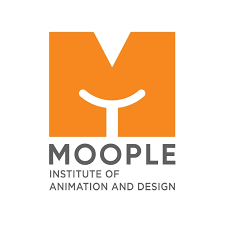Animation has a structure that imparts technical and artistic skills. It includes tools like Blender, Maya, and Adobe Animate. Although it is not vital, formal schooling is preferable. Both fundamental and sophisticated animation methods are taught. Programs like the bachelor’s degree in animation or visual design expose students to the field. This blog will showcase the necessity for learning skills and a portfolio in this field for career growth.
The Benefits Of Getting A Degree In Animation
Some degree programs offer a blend of conventional and computer-generated animations. These classes teach storytelling, character creation, and using visuals. Students also master professional tools from work environments and settings. A structured environment is better for learning animation technologies and techniques. It guarantees that the subject is aware of trends and practices in the field. It also lets the students boost their creativity. They can practice teamwork and communication.
They are usually undertaken as part of a degree in animation. They offer practical sessions and business connection programs. An organisation prizes such an experience for its real-life career challenges.
Is An Animation Degree Always Required?
It’s not necessary to get a degree in animation in fact, many animators have achieved their goals without any formal education. They did so with little or no education in their methods of gaining skills. You can learn software skills at online animation classes or boot camps. These programs focus on experiential learning and compile coursework as a primary aim. With the help of Noble Desktop, you can complete your training at a reasonable cost.
The same applies to freelance teachers or interns with many employers. Volunteers and independent projects bring some skills and authority. Thus, you can search on the web for animation classes near me to find the best course for becoming a freelancer. Also, networking on LinkedIn or even on forums about animation can help in your career.
Career Opportunities
Animation careers are open to more than just their specialities. Junior animators need more experience, but their jobs require only a few essential skills and a great portfolio. Middle-level positions require several years of experience and skill in plateau applications. Only some organisations post vacancies at senior levels. Animators must have leadership and project management skills. Career opportunities for animators include game animation, commercial animation, films and television.
Another such occupation is freelancing. Freelance animators are creative and can work whenever they want. Company employees need help to do this. Yet, it involves frequent self-promotion and pursuing clients. Freelancers who want to improve should find high-paying jobs and focus on skills like motion graphics or character animation.
Freelancing As An Animator
Freelancing provides flexibility and freedom in ideas and decisions. Freelance animators can work on various projects. They can help develop video games and ads. Often, they use their portfolio to find clients to render their services. Experience outweighs theory when it comes to freelancing. What matters is whether you can deliver high-quality work on time.
Also, freelancers must have good marketing skills from a degree in animation to get jobs. They must also manage their career promotion and conduct high-impact research. They could use platforms like Behance or ArtStation to market their work. Freelancers have a better chance of securing employment within the typical animation industry. In hindsight, they have to be dynamic and master new strategies for their services.
The Role Of Technology
Animation depends entirely on technological help. The company expects the animator to have prior experience using industry-standard software. Some of these tools are likely available in a degree program, sometimes in training. Yet, most of the information available online can instruct people on software skills. Self-learning may work for some students as a replacement for traditional schooling. To be more productive, animators must stay relevant with new tools and advancements. Learning these tools from a degree in animation may benefit and make them more desirable to employers.
Final Thoughts
The degree boosts animation careers, but you do not need a degree. Most of the animators pursue other careers via procedural education and individual learning. Schooling improves knowledge and develops strategies. Yet, success depends on building skills and creating a solid portfolio. If you prefer looking for animation classes near me for training, Moople Institute of Animation and Design is a great option. It can teach you how to get a job in animation.

